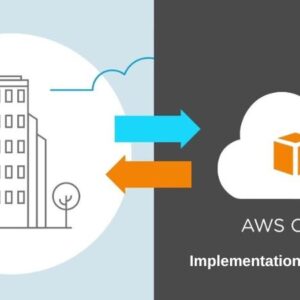Oracle ERP cloud implementation can bring many benefits to your business, including improved efficiency through automation of routine tasks, real-time insights for faster decision making, and More insight, scalability to grow with your business, and save costs by reducing the need for on-premises hardware and software. Let’s learn more about it with crazyhot.net.
What is Oracle ERP Cloud?
Oracle ERP Cloud is an integrated business management solution based on Oracle Corporation’s cloud technology. “ERP” stands for “Enterprise Resource Planning,” which means enterprise resource management. Oracle ERP Cloud provides a comprehensive business platform that helps businesses organize, manage, and optimize their business operations from different perspectives.
What is Oracle ERP cloud implementation?
Oracle ERP Cloud Deployment refers to configuring and deploying Oracle ERP Cloud within an organization.
This process is important in ensuring the ERP system aligns with business goals and improves operational efficiency.

Some key points about Oracle ERP cloud implementation
Comprehensive Integration
Oracle ERP Cloud integrates various management functions such as finance, human resource management, supply chain, project management, and more into a single system.
On Cloud Platform
The solution runs on Oracle’s cloud platform, allowing remote access and reducing the need for server infrastructure and enterprise software.
Process Automation and Optimization
Oracle ERP Cloud helps increase automation of business processes, from order creation to invoice payment, helping businesses reduce time and costs.
Project Management and Data Analysis
Provides project management and data analytics tools to support strategic decisions and optimize business performance.
Security and Compliance
Oracle ERP Cloud ensures high levels of security and compliance with information security regulations to protect critical business data.
Constantly updated
Because it runs on the cloud platform, Oracle ERP Cloud regularly receives updates and upgrades from Oracle without requiring much user intervention.
Oracle ERP cloud implementation effectively
Determine requirements
Understand and outline your business requirements.
Plan and prepare
Develop a detailed implementation plan and prepare your team.
Move data
Carefully plan and execute the migration of existing data to the new system.
Customization and integration
Customize and integrate your ERP system to fit your specific business needs.
Training and testing
Provide comprehensive user training and conduct thorough testing.
Go-Live and Support
Launch the system and ensure ongoing support and maintenance.

The importance of strategic planning
Strategic planning is the foundation of a successful Oracle ERP Cloud implementation. It ensures that the ERP system is aligned with the organization’s long-term goals and delivers tangible benefits.
Align with business goals
Ensure the ERP system supports and enhances key business objectives.
Resource allocation
Effective planning helps allocate financial, human and technical resources optimally.
Risk reduction
Identify potential challenges and risks, enabling proactive mitigation strategies.
Important steps in the initial planning phase
Requirements analysis
Understand and document specific business needs and processes.
Determine scope
Clearly define what the implementation will include, including timelines and deliverables.
Choose the right group
Establish a skilled implementation team with technical and functional expertise.
Cooperate with suppliers
Work closely with Oracle or selected implementation partners to receive expert guidance.
Build a roadmap
Create a detailed implementation roadmap with clear milestones and checkpoints.
Top 5 best practices for successful Oracle ERP cloud implementation
Clearly define business goals and results
Detail goal
Set clear, measurable goals for what the implementation should achieve.
Focus on results
Align ERP system capabilities with desired business outcomes.

Engage stakeholders and ensure effective change management
Stakeholder engagement
Involve key stakeholders from every department in the planning and implementation process.
Change management strategy
Develop a comprehensive strategy to effectively manage organizational change.
Focus on user training and adoption
Comprehensive training
Deploy detailed training programs to equip users with necessary skills.
User acceptance measures
Encourage user adoption through ongoing engagement and support.
Extensive testing before full deployment
Pilot testing
Conduct pilot testing to identify potential problems and make necessary adjustments.
Incorporate feedback
Use feedback from testing phases to refine the system before full deployment.
Plan for ongoing support and updates
Continuous support
Establish a support system to address post-deployment challenges.
Updated frequently
Keep your system up to date with the latest features and security enhancements.
Common mistakes to avoid when implementing Oracle ERP cloud
Recognize the importance of data quality
Data integrity
Ensure data accuracy and cleanliness before and during migration.
Underestimating the resources needed
Full resources
Allocate enough financial, human and technological resources for smooth implementation.
Ignore employee training and engagement
Employee engagement
Engage employees throughout the process and provide thorough training to ensure a smooth transition and effective use of the new system.

In conclusion
These best practices and common pitfalls highlight the critical elements of a successful Oracle ERP cloud implementation, ensuring that organizations can take full advantage of the system’s capabilities to enhance operations. their business. Case studies and lessons learned highlight the importance of strategic planning, training, and customization in realizing the benefits of this powerful system. Looking ahead, Oracle ERP Cloud is poised to continue to play a vital role in the evolving business landscape, providing solutions that serve the dynamic needs of diverse industries.





